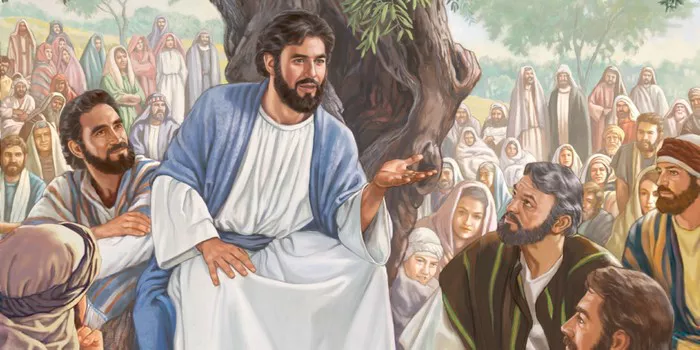Throughout history, the consumption of wine has been intertwined with religious and cultural practices. In Christianity, the act of Jesus drinking wine has sparked theological debates and interpretations. Some view it as a symbol of moderation and celebration, while others raise questions about the morality of alcohol consumption. This essay delves into the reasons why Jesus drank wine, exploring the historical, cultural, and symbolic significance within the context of his teachings and the society of his time.
Historical and Cultural Context
To understand why Jesus drank wine, it is essential to examine the historical and cultural context of his life. In first-century Palestine, wine was a common beverage consumed by people of all social classes. It played a central role in Jewish religious rituals and daily life, symbolizing joy, abundance, and covenantal blessings. Wine was also valued for its medicinal properties and as a safer alternative to water, which was often contaminated.
Moreover, wine held significant cultural and social significance in Jewish society. It was a symbol of hospitality and generosity, with hosts often offering wine to guests as a sign of welcome and goodwill. Wine was also an integral part of Jewish festivals and celebrations, including Passover, where it symbolized the joy of freedom and redemption.
Jesus, as a Jewish rabbi and religious figure, would have been immersed in this wine-drinking culture. His ministry took place within the context of Jewish traditions and customs, where wine held a prominent place in religious observance and communal life.
Biblical References to Jesus and Wine
The New Testament contains several references to Jesus and wine, which provide insights into his attitude towards alcohol consumption. One of the most well-known accounts is the Wedding at Cana, where Jesus performed his first miracle by turning water into wine (John 2:1-11). This event signifies Jesus’ ability to bring joy and abundance, transforming the ordinary into the extraordinary.
Furthermore, Jesus frequently used wine as a metaphor in his teachings, such as in the Parable of the Wineskins (Matthew 9:17, Mark 2:22, Luke 5:37-39) and the Last Supper (Matthew 26:26-29, Mark 14:22-25, Luke 22:14-23). In these instances, wine symbolizes the new covenant and the sacrificial nature of Jesus’ death, representing the blood shed for the forgiveness of sins.
Additionally, Jesus’ practice of sharing meals with sinners and tax collectors (Matthew 9:10-13, Mark 2:15-17, Luke 5:29-32) has led some scholars to suggest that he may have consumed wine in these settings. By dining with those considered social outcasts, Jesus challenged societal norms and demonstrated compassion and inclusivity.
Symbolism of Wine in Jesus’ Ministry
The symbolic significance of wine in Jesus’ ministry extends beyond its literal consumption. Wine served as a powerful symbol of spiritual truths and divine blessings, enriching his teachings and miracles.
Firstly, wine symbolizes joy and celebration in the kingdom of God. Jesus often used banquet imagery to describe the eschatological feast awaiting believers in heaven (Matthew 8:11, Luke 13:29). By participating in festive meals and sharing wine with his disciples, Jesus emphasized the abundant life that awaits those who follow him.
Secondly, wine represents the unity and communion of believers. At the Last Supper, Jesus shared wine with his disciples, instructing them to drink it as a symbol of his blood shed for the forgiveness of sins. This act established the Eucharistic tradition in Christianity, where wine (or grape juice) symbolizes the ongoing presence of Christ and the spiritual nourishment of believers.
Moreover, wine embodies the concept of transformation and renewal. Just as Jesus turned water into wine at the Wedding at Cana, he offers new life and spiritual renewal to those who believe in him. Through his death and resurrection, Jesus brings about a new covenant, symbolized by the cup of wine shared at the Last Supper.
Ethical Considerations
While the Bible portrays Jesus as consuming wine in certain contexts, it does not explicitly condone or condemn alcohol consumption. Instead, it provides principles for responsible and moderate drinking, cautioning against drunkenness and excess (Ephesians 5:18, Proverbs 20:1, 1 Corinthians 6:9-10).
In light of this, some Christians interpret Jesus’ consumption of wine as a model of moderation and self-control. They argue that enjoying wine in moderation is consistent with biblical principles and can enhance social interactions and fellowship. However, others caution against using Jesus’ example to justify excessive drinking or alcohol abuse, emphasizing the importance of temperance and sobriety.
Conclusion
The act of Jesus drinking wine holds significant theological, cultural, and symbolic meaning within the Christian tradition. In the context of first-century Palestine, wine was a common beverage imbued with religious, social, and medicinal significance. Jesus’ consumption of wine reflects his immersion in Jewish culture and his use of familiar symbols to convey spiritual truths.
Through his teachings and actions, Jesus imbued wine with rich symbolism, representing joy, unity, transformation, and renewal. The biblical accounts of Jesus’ interactions with wine provide insights into his attitude towards alcohol consumption and its ethical implications for believers.
Ultimately, the significance of Jesus drinking wine lies not only in its literal consumption but in the deeper spiritual truths it symbolizes. Whether viewed as a symbol of moderation and celebration or as a metaphor for the new covenant and spiritual nourishment, wine serves as a powerful reminder of Jesus’ transformative presence in the lives of believers.


